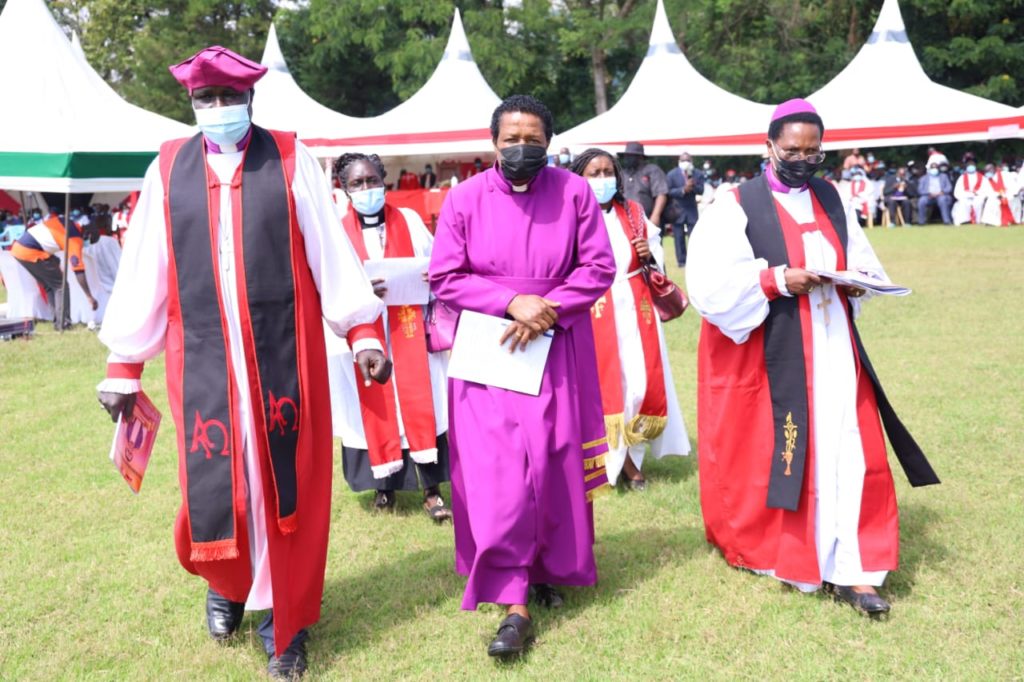Women in the episcopate threaten to rend the fabric of the conservative Anglican movement known as Gafcon or Global Anglican Future Conference.
As Religious News Service reports,
[T]he Rev. Rose Okeno was enthroned as bishop of the Butere Diocese on Sunday (Sept. 12).
Okeno, 54, was consecrated in a ceremony presided over by Archbishop Jackson Ole Sapit, the primate of the Anglican Church of Kenya, making her the first woman to be a full Anglican bishop in the East African country, where the consecration of women as bishops is still controversial.
…
As bishop, Okeno will serve a rural population where the majority of the faithful are small-scale farmers and traders. She was elected on July 20 by a majority of a 23-member college of delegates, beating two male contenders.
Her election is controversial in Gafcon, founded primarily over divisions within the Anglican Communion surrounding homosexuals in the episcopate.
For ACNA, the Anglican Church in North America (not an Anglican Communion province, but recognized by provinces in Gafcon that are) women in the episcopate is a problem. In a pastoral message to his flock in ACNA, Archbishop Foley Beach writes
I am writing to you today from Nairobi, Kenya at the close of the recent Gafcon Primates Meeting. I am thankful for our global fellowship that is providing encouragement for many, from those undergoing persecution in Nigeria to those grappling with theological innovations in Wales [the Anglican Church in Wales recently approved blessings of same-sex marriage]. I encourage you to read more from the press release here.
There is one matter coming out of our meeting that is a challenge for a number of us in the Anglican Church in North America, myself included.
The Anglican Church of Kenya recently consecrated a female diocesan bishop, and there has been speculation about how this development might affect our fellowship. At our meeting, the Gafcon Primates agreed we have not come to a consensus on the issue of women in holy orders, and specifically women in the episcopate. At its founding, Gafcon articulated in the Jerusalem Declaration the centrality of the Gospel message of salvation while acknowledging differences in secondary matters and pledging “to work together to seek the mind of Christ on issues that divide us.” Such matters will certainly stretch our fellowship, but our unity in Christ remains strong.
I recognize that this decision will come as a deep disappointment to some. I share in that disappointment. I wish Gafcon were of a common mind on this topic, but the reality is that we are not. However, let us remember that Gafcon founded the Anglican Church in North America, and these orthodox leaders in the Anglican Communion sacrificially put their lives on the line for the Gospel of Jesus Christ every day. This decision does not change how our Province operates as our constitution and canons are clear. Gafcon is not an ecclesial jurisdiction; it is a conference.

